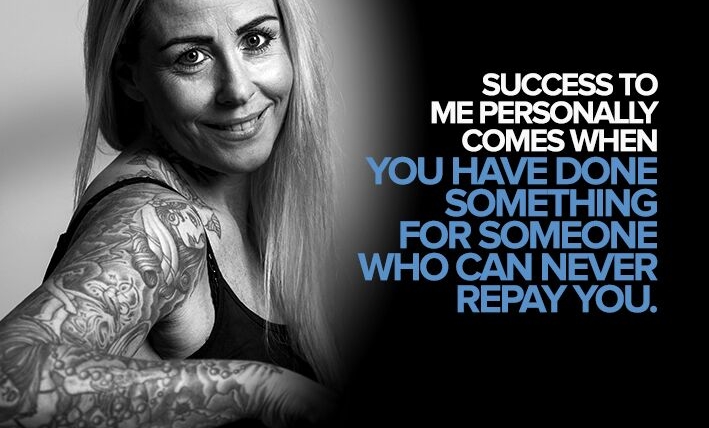
How To Overcome Self-Limiting Behaviors As Leaders
By Janice Perkins, GC4W Thought Leadership Contributor
In an exercise I do with my clients, we discover our “tend tos”. What are the things we tend to do when we are in distress or overwhelmed? What are the things we tend to do that lock us up and keep us from our best selves and best leaders? These “tend tos” are what others refer to as self-limiting behaviors. We all have them. Don’t kid yourself that you don’t. Hopefully we are aware of them.
Here are a few of the top ones to guard yourself against and be aware of how they are keeping us from our best selves in decision making and leading our teams.
Control – In distress, we often grasp at a semblance of control over anything to stabilize ourselves. So, we stop delegating and do everything ourselves. We micromanage others to do things our way. We become hyper-vigilant which is a never-ending cycle of looking for mistakes (danger) everywhere. Your team and employees get exhausted by this behavior. Trust is eroded and they don’t feel valued.
Negative focus – We can’t see the forest for the trees. We only see the one thing wrong and can’t see anything that is done correctly. We nitpick at all the wrong things. We blow one thing wrong up way out of proportion. The perception is that we are overreactive leaders. Our teams feel undervalued here and the tension for them in always being afraid of being the one caught doing something wrong is incredible. They begin to hide from you and be wary of all interactions.
Perfectionism – We feel like if everything is perfect then everything will be okay. This can be a combination of Control and Negative Focus to an extreme. It also is our definition of perfect. Our standard of perfection. No one can know that or live up to it. Perfect doesn’t make things okay. No one can be perfect. This “tend to” also devalues staff and dehumanizes everyone. It becomes an environment where forgiveness and grace cannot thrive.
Retraction – When put under pressure or stressed, we go into a cave to retreat and hide. We disengage which depletes energy away from the client, project, and the team. Retraction can cause a chain reaction of apathy throughout a team. If no one is engaged, why should I be? Work ethic can be challenged. This creates a culture where collaboration can be difficult and teamwork is nonexistent. Habitual retraction creates individualism.
Explosion – Blame and shame and misplaced anger are completely unhealthy for all those involved. Accountability and learning from our mistakes should never involve blame and shame. Many times these anger riddled conversations go into parent/child voice and are condemning. Explosive behavior also makes leaders hide out, avoid conversations and teamwork. High drama and factions can be born here and create incredibly negative culture.
People pleasing – When we feel the pressure of conflict and difficult decision, some of us begin to acquiesce based on our need to make peace and people please other’s uncomfortable emotions. We remove our opinion or our value thinking we are bringing peace. Pleasing others is not the same as compromise. Compromise and finding common ground is healthy. Pleasing others and acquiescence is passive and not engaging. Teams will disrespect leaders who don’t stay strong and rather begin to please.
Why is it important to manage your “tend tos”?
Our tend tos are not ours alone. They affect everyone around us. Our teams, employees, customers and families. Make a list of a few of your tend tos and make a conscious effort to de-escalate yourself the next time you feel one of them coming on. Step away, take a breath, apologize for your tension or frustration. Own it. Don’t make a list of more than 5 of them or you will get down on yourself. If you really don’t know them, ask your spouse, sibling or teenage kids – they definitely know. Focus on one of your tend tos this year and reduce significantly how often it derails you and keeps you from your best self.
Be aware and take the space to calm down and handle a tense situation maturely. Don’t react, instead respond. Make sure you are eating, sleeping, and taking care of you. High distress and a lack of energy or stamina can create a great storm where our tend tos can thrive. Look for situations that exacerbate these situations and manage your time and calendar to be kinder to ourselves and reduce stress.
About our thought-leadership contributor, Janice Perkins
Janice Perkins is the Owner of Capacity Communication and the Director of Marketing – Marshall Goldsmith’s Methods of Leaders. Marshall Goldsmith’s Methods of Leaders is a global project started as a way to make the knowledge of the world’s most influential business thinkers from the MG 100 Coaches accessible for current and future leaders around the world. Their mission is to share the collective knowledge of the world’s greatest leaders with the world’s most influential people — those current and future leaders, managers, entrepreneurs, and self-starters who can make a positive impact on society — and to make it readily available, affordable, and accessible anywhere, anytime. Janice has been working as Director of Marketing for Methods of Leaders since last year.





